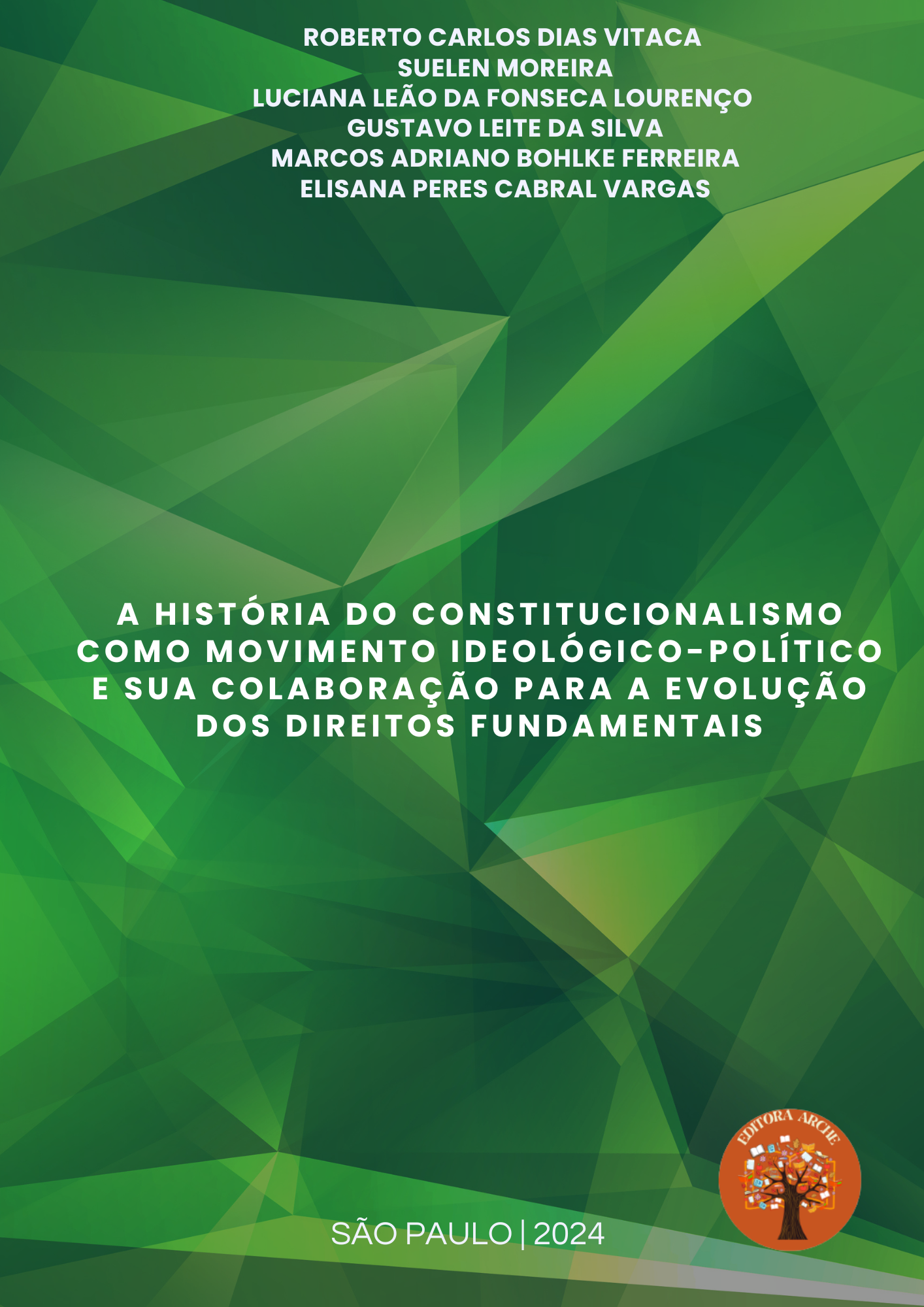THE HISTORY OF CONSTITUTIONALISM AS AN IDEOLOGICAL-POLITICAL MOVEMENT AND ITS CONTRIBUTION TO THE EVOLUTION OF FUNDAMENTAL RIGHTS
Keywords:
Constitutionalism. Constitution. Dignity of human person. StateAbstract
Constitutionalism is a complex and multifaceted phenomenon that spans centuries of historical, legal and political development. This book, entitled "THE HISTORY OF CONSTITUTIONALISM AS AN IDEOLOGICAL-POLITICAL MOVEMENT AND ITS COLLABORATION FOR THE EVOLUTION OF FUNDAMENTAL RIGHTS", aims to provide an in-depth analysis of the trajectory of this movement, addressing its origins, evolutions and impacts throughout history, with special emphasis on its contribution to the development of fundamental rights. Composed of three chapters, this work aims not only to inform, but also to provoke critical reflection on the paths taken by constitutionalism and its relevance today.
CHAPTER I: INTRODUCTORY PATHS ON CONSTITUTIONALISM
In the first chapter, the reader is invited to embark on a journey through the initial concepts and theoretical frameworks that gave rise to constitutionalism. Here, the philosophical and ideological roots that shaped this movement are explored, from the first notions of limiting state power to the formation of the first constitutional texts. The narrative presents an overview of the ideas that were consolidated over the centuries, highlighting the role of thinkers such as John Locke and Montesquieu in formulating the theoretical bases that support modern constitutionalism. This chapter serves as a foundation for understanding the themes that will be developed in the following sections, offering the reader a clear and contextualized vision of the importance of constitutionalism as a transformative force in political and social history.
CHAPTER II: CONSTITUTIONAL ORIGIN
The second chapter delves into the historical origins and social and political conditions that made possible the emergence of the first constitutions. This chapter provides a detailed analysis of crucial moments, such as the promulgation of the Magna Carta in 1215, which represented one of the first documented efforts to limit monarchical power, and the Glorious Revolution in England, which paved the way for constitutional government. The text then addresses the impact of the American and French Revolutions at the end of the 18th century, exploring how these events not only resulted in the creation of new states, but also in the enshrinement of fundamental rights in documents such as the United States Constitution and the Declaration of the Rights of Man and of the Citizen. This chapter also highlights the mutual influences between the different constitutional movements and how they contributed to the dissemination and adaptation of constitutional principles in different cultural and political contexts around the world.
CHAPTER III: FINAL IMPRESSIONS ON CONSTITUTIONALISM
In the final chapter, the book offers a comprehensive reflection on the contributions of constitutionalism to the development of fundamental rights, drawing a parallel between classical theories and contemporary challenges. The text discusses how constitutional principles have been reinterpreted and applied in different eras to respond to emerging social and political demands, such as the civil rights movement, the fight for gender equality, and the protection of minorities. The section also addresses the tensions and dilemmas faced by modern states in their quest to balance the protection of individual rights with the needs of security and public order, especially in a context of globalization and interdependence between nations. Finally, the chapter invites the reader to reflect on the future of constitutionalism, considering the possibilities and challenges that arise in the 21st century, such as technological advances, the environmental crisis, and the growing questioning of democratic institutions.
In short, throughout this book, the reader will find a comprehensive analysis of the evolution of constitutionalism and its importance for the construction of modern societies. More than a simple historical account, this work seeks to provide a deep understanding of the dynamics that shaped constitutionalism as an ideological-political movement, highlighting its indispensable contribution to the protection and expansion of fundamental rights. It is essential reading for all those who wish to understand the foundations on which contemporary democracies are based and reflect on the possibilities for their future evolution.
The authors
Downloads

Downloads
Published
How to Cite
License
Atribuição CC BY
